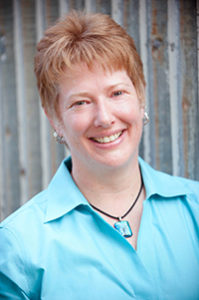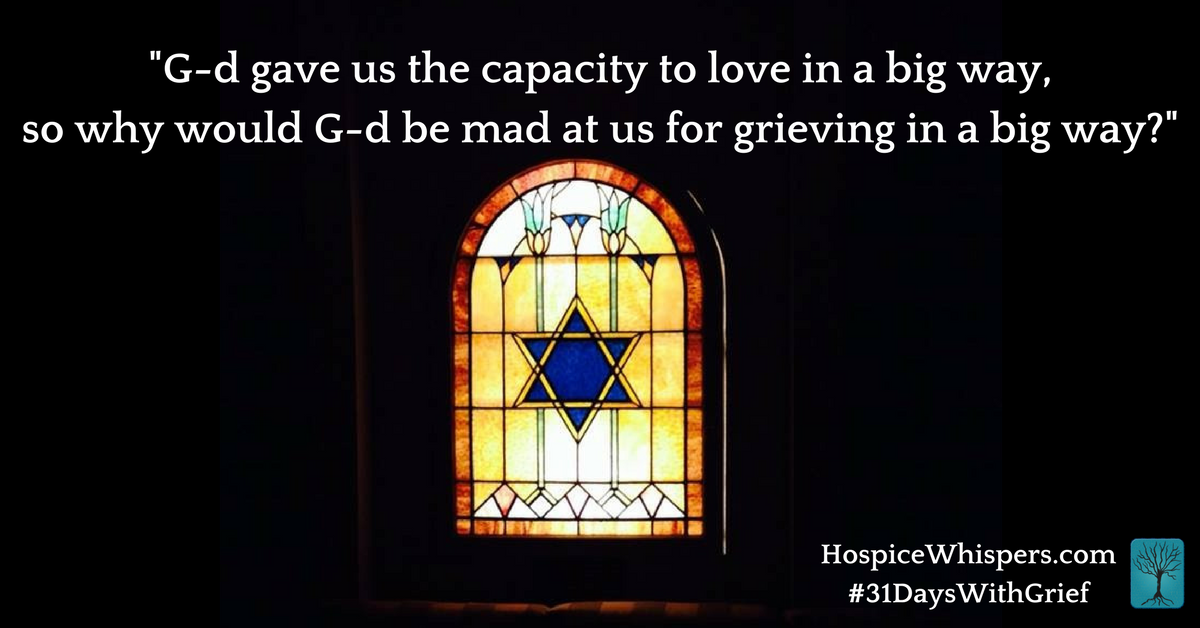31 Days of Walking with Grief: Others’ and Our Own
Day 12—Are Questions Counter to Faith?
This is a month-long series to support persons grieving and those who love them. It includes content from “Sharing Our Stories: A Hospice Whispers Grief Support Workbook” available through Amazon and wherever books are sold.
I can’t even begin to count the number of times I’ve been asked some form of, “Am I a bad (enter faith tradition here) for having questions/doubts/anger about this?” As a pastor of a faith community, I’m allowed to answer this question and others, and am even expected to offer teaching and counsel according to my religion.
As a chaplain or grief counselor, however, the boundaries and expectations are far different as we respect others’ beliefs and values while avoiding the opportunistic promotion of our own. That’s not why we’re there, nor what we’re getting paid to do. We reflect the questions back to the person, normalizing and affirming their feelings, and walk with them as they find their own answers within their own belief and value system.
There’s a subtle risk of assuming that I know the answers to another’s questions, or that what works for me will work for them. To treat others as if I know better than do they how they should direct their life is hubris on my part and disrespects their autonomy and dignity while elevating my own importance. That’s a trap against which I always want to guard.
So often, I’ll answer by saying, “What rings true for you? Do you believe you’re allowed to ask questions/have doubts/feel anger?” What follows is a dialogue during which they speak aloud their thoughts and I reflect back to them what I hear them saying.
Most often, it seems that they don’t really feel guilty or wrong for expressing their struggles, but fear that I will shame or judge them for having them. When I don’t gasp in shock and condemn them, but instead lovingly and gently ask them their thoughts and beliefs, it seems reassuring to them.
When I normalize and affirm their struggles, “Of COURSE you feel that way! Many people in your situation do”, their shoulders sink and their faces relax in relief as they say hopefully, “Really?!?!”
If their theology does NOT allow for these things, they will tell me that, and I follow them through finding peace according to their belief-system, but it’s not exceptionally common for persons to hold a hard and fast belief that G-d will judge them for being honest and real and human.
When I am NOT in the role of chaplain or grief counselor, I have more freedom to speak what I believe. These are a few of my thoughts, and I invite you to take what fits for you and blow off the rest. For those of you who call a higher power or deity by a different name, or who are non-theist, I trust you to adapt this in whatever way works for you. I’d also love to hear all of your views:
- G-d gave us our emotions, so why would G-d begrudge our having them, especially in times of grief?
- G-d gave us the capacity to love this person in a big way, so how could G-d be mad at us for being angry and grieving in a big way?
- My G-d is big enough to handle our honest questions and struggles, and isn’t petty enough to be offended by them.
- As a therapist, when a couple told me they weren’t arguing, I knew to worry! Either they weren’t being genuine and honest with each other, or themselves. If they were stuffing their feelings or too insecure in the relationship to argue, it did not bode well for the health of their relationship. Arguing with a loved one can actually be healthy to some degree. Doing so clears the air, helps us understand each other, and even ourselves, better, and strengthens our relationship. I believe our relationship with G-d is no different.
- The issue isn’t whether we have questions/doubts/anger but what we do with them.
- In the Judeo-Christian scriptures, Jacob wrestled all night on the top of the mountain with G-d (or an angel of G-d, depending on your translation) and refuse to let go until he received a blessing. Afterward, his name was changed to Israel, meaning one who wrestles with G-d, and he was told that through him all nations would be blessed. Wrestling with God was not condemned, it was blessed.
- From the Christian New Testament, in I Thessalonians, the Apostle Paul writes, “We would not have you ignorant, brothers and sisters, about those who are asleep, so that you would not grieve as those who have no hope.” (4:13). He did not say, “Don’t grieve”. He assumed that we WOULD grieve, and just encouraged us to have hope when we do.
I once visited with an associate minister of a faith community who spoke with a hardened face and voice, “I haven’t been able to bring myself to go back to services since my son died.”
My immediate response was, “Of COURSE you haven’t!” He looked at me, stunned, and said, “What?!”
“I can’t imagine the triggers and memories, the expectations of you when you’re there, the dozens of people who want to come comfort you and swamp you with love and even well-intended but not helpful cliches and phrases, let alone any questions or anger or doubts you may be grappling with. Many people would be struggling to still be on speaking terms with G-d after the death of their child. I don’t know your reasons, but whatever they are, they wouldn’t surprise me.”
His whole countenance relaxed as he said with a sigh of relief, “You’re the first person I’ve met who hasn’t wanted to fix me. Thank you!”
It was as if, suddenly, without someone pushing back against or judging his grief and anger and pain, it could relax and finally move. He told me later what a tremendous difference it made for him. And he eventually got back on speaking terms with G-d…but not because someone scolded or judged or shamed him into it. He needed time to heal in all respects. His spiritual healing was no different.
I don’t know your story, your beliefs, or your thoughts on this. Whatever they are, please hear someone affirm them, and you, and state clearly that you get to find your way in your time with your own answers, and it is all good.
Peace,
Carla
 Rev. Carla Cheatham, MA, MDiv, PhD, TRT has served hospices as a chaplain and bereavement coordinator. She’s the Section Leader for the Spiritual Caregivers Section of the National Hospice and Palliative Care Organization and an adjunct professor at the Seminary of the Southwest. Through her Carla Cheatham Consulting Group, Carla provides training and consulting for professional caregivers nationwide. She is the author of Hospice Whispers: Stories of Life and its companion volume, Sharing Our Stories: A Hospice Whispers Grief Support Workbook. Her next book, On Showing Up with Suffering: Others’ and Our Own, is set to publish in 2017.
Rev. Carla Cheatham, MA, MDiv, PhD, TRT has served hospices as a chaplain and bereavement coordinator. She’s the Section Leader for the Spiritual Caregivers Section of the National Hospice and Palliative Care Organization and an adjunct professor at the Seminary of the Southwest. Through her Carla Cheatham Consulting Group, Carla provides training and consulting for professional caregivers nationwide. She is the author of Hospice Whispers: Stories of Life and its companion volume, Sharing Our Stories: A Hospice Whispers Grief Support Workbook. Her next book, On Showing Up with Suffering: Others’ and Our Own, is set to publish in 2017.



Leave a Reply